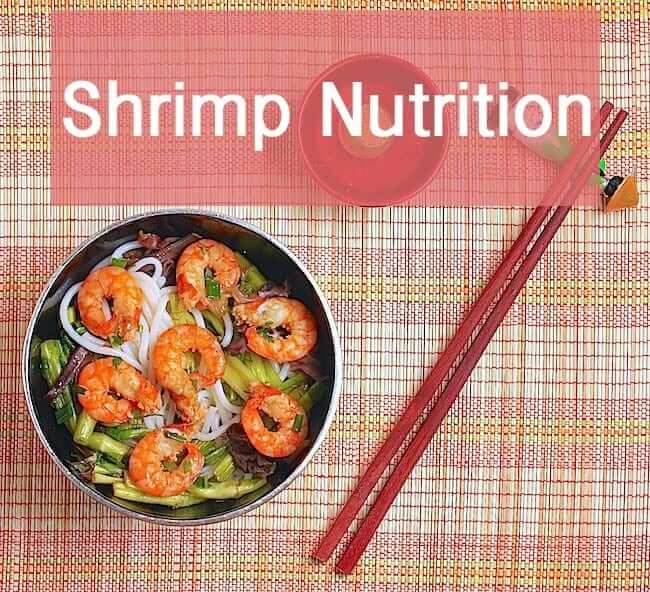Shrimp Nutrition Facts
A small animal with big health benefits, shrimp is one of the best shellfish you can eat. It is a delicious protein source that is packed with many essential nutrients. Learn more about shrimp nutrition facts and how to prepare it at home. Shrimp Nutrition Facts Shrimp has an impressive quantity and quality of nutrients.…
This post may contain affiliate links. Please read our disclosure policy.
A small animal with big health benefits, shrimp is one of the best shellfish you can eat. It is a delicious protein source that is packed with many essential nutrients. Learn more about shrimp nutrition facts and how to prepare it at home.
Shrimp Nutrition Facts
Shrimp has an impressive quantity and quality of nutrients. It provides half of the daily value of protein and a good amount of omega fatty acids. It is also a known source of astaxanthin, a carotenoid that is being studied extensively for its health benefits.
Very few foods contain the amount of copper found in shrimp. One 4-oz serving contains as much as 32% of the recommended daily intake, which is unusually high. In addition to copper, the shellfish is rich in selenium, vitamin B12, phosphorus, choline and iodine.
Shrimp Health Benefits
Unless you are allergic to shrimp, adding it to your menu can boost your body’s performance in many ways.
Prevents Heart Disease
Shrimp has all major nutrients to maintain good cardiovascular health. Omega fats and selenium provide extra protection from heart failure and disease. They lower cholesterol to reduce the chances of cardiac arrest and strokes. The selenium found in shrimp is also special because most of it can be absorbed.
Protects Digestive System
One of the reasons why astaxanthin is interesting to researchers is because it can help prevent colon cancer. There are animal studies that can attest to this. Because this nutrient cares for the colon, it inadvertently improves digestion and bowel movement.
Supports Immunity
The strength of the immune system is dependent on the intake of certain nutrients. Selenium and copper are two of them. Without these minerals, the body can become weak and defenseless against disease. Increase your intake by eating shrimp more frequently.
Aids Weight Loss
Shrimp can make maintaining a healthy weight easier. Because it contains both iodine and selenium, it reduces the risk of thyroid malfunction. Vitamin B12 also aids weight loss by encouraging your body to use up fat instead of storing it.
Promotes Good Mental Health
In addition to good physical health, shrimp can also improve your mental health as well. Choline is known for supporting brain and nervous system function. When you pair it with vitamin B12, it can clear up mental fogginess and give you more energy.

How to Cook Shrimp
Hopefully, shrimp nutrition facts have given you plenty of reasons why you should add it to your diet. You can now learn how to prepare your own shrimp platter at home.
Buying Shrimp
You can find fresh or frozen shrimp from the local grocery store or fish market. If you can, find shrimp that has already been de-shelled. If you can’t, choose ones with light grey shells and translucent white meat.
Prepping Shrimp
If you have the de-shelled variety, remove the shell and slice shrimp in the middle to remove the black vein. Rinse the fish in cool water and allow them to sit for a few minutes in room temperature.
Cooking Shrimp
Bring a pot of water to a boil and add shrimp. Make sure the water is enough to cover all the fish. Cook for 1-2 minutes and remove the pot from heat when bubbles start to appear. Let them sit in the water to cook for 5-10 more minutes. When they turn pink, shrimp is done.
You can also sauté shrimp in 2-3 tablespoons of olive oil or grill them on skewers. Avoid seasoning the meat before cooking as it may ruin the flavor. You can squeeze fresh lemon over shrimp after it is cooked or serve with your choice of sauce.



Jelly says
Good to know this.